Climate positive?
The word neutral in carbon neutral has always bothered us. Can we aspire to be more than neutral? Can we aspire to have a positive impact on the environment, and why not, on humans? — We think so, so we invented the word climate positive. It's easy to invent a word, yes, but not so easy to have the necessary rigor to live up to it. Here's how we do it:
First, there are unavoidable emissions. Growing coffee, like any other agri-food product, generates greenhouse gases. Second, it's a product grown primarily in Central America, Africa, and Asia—so there will always be a long journey by truck and ship to get it here. And again, this transportation generates emissions.
At Binocle, we select small and medium-sized producers who adopt sustainable practices such as hand-harvesting, the use of organic fertilizers, the absence of pesticides, and shade-grown crops. By doing so, we eliminate a large portion of emissions at source from the outset. For the rest—the unavoidable emissions related to cultivation, transportation, and storage—we collaborate with the renowned engineering consulting firm LCL Environnement, which performs a comprehensive calculation of our carbon footprint each year, based on the origin and volume of our coffee purchases.
These emissions are then double-offset with Carbone Boréal, a UQAC research center working on sustainable reforestation in northern Quebec. This double offsetting gives us the coveted “Climate Preventer” status.
LCL Environment
Carbon Neutral Certifications
We hold two carbon-neutral certifications, which you'll find identified on all our bags. One covers our coffee, and the other covers our operations. This dual certification is our way of ensuring there are no blind spots in the actual calculation of our total carbon footprint.
Then there is the question of packaging.
There's a lot of uncertainty, incongruity, and misinformation surrounding compostable containers. The issue is complex, and different municipalities have different requirements. Our bags are certified by TUV as home and industrial compostable. They are made from paper, rice paper, and bioplastic derived from corn and sugarcane. In home compost, they decompose more than 90% in less than six months. In industrial compost, with the right equipment, complete decomposition occurs in less than 90 days.
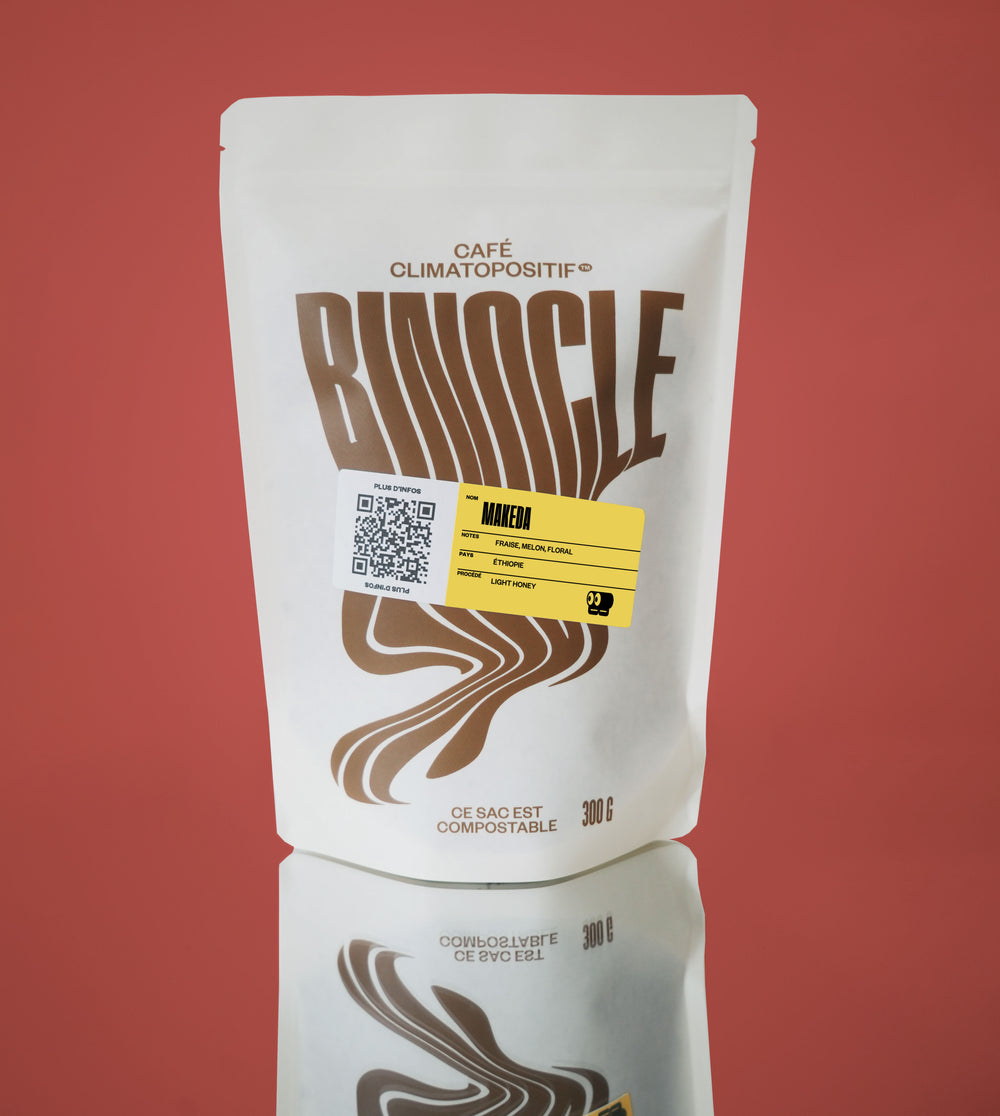
For our commercial orders, which represent almost 50% of our volume, we simply use reusable containers!
Bellwether Roaster
Now let's talk about avoidable emissions. More specifically, a major taboo: roasting is highly polluting. Traditional roasters run on gas and, through the process of "cooking" the coffee, also generate a significant amount of smoke. We're therefore talking about a dual source of emissions: those linked to the combustion of the gas and those from the smoke produced.
At Binocle, we've chosen to invest in a revolutionary 100% electric roaster with zero smoke emissions. It sounds too good to be true, but this machine really exists: it's the result of more than ten years of research and development in California by the Bellwether company. This roaster runs exclusively on renewable energy—our precious hydroelectricity—and thanks to a hot air filtration and recirculation system, it emits no smoke. We are the only ones in Quebec to roast with this exceptional device, which, in addition to being (almost) zero emissions, offers an unparalleled degree of control over roasting curves.
And finally, delivery is also a major source of emissions.
That's why we deliver exclusively in Quebec. Furthermore, 80% of our deliveries are made by bicycle or electric vehicle. For the remaining 20%, which we deliver with traditional carriers, we calculate the distances traveled each year and offset these emissions twice as part of our carbon neutral certification, through a sustainable reforestation program in northern Quebec. Our deliveries are therefore always carbon neutral, and almost always zero emissions.
TRULY ETHICAL
Really?
Poverty among coffee farmers has been a persistent crisis for generations. Today, 80% of coffee farmers worldwide live below the poverty line. The problem at the source is simple: the purchase price of green coffee is systematically too low to allow them to meet their basic needs. Added to this are several major challenges: market fluctuations, coffee rust, climate change, and a shortage of migrant labor.
Is there a solution?
For consumers: Buying your coffee from an ethical microroaster, rather than cheap coffee from the grocery store, is a crucial step. Don't rely solely on a Fairtrade logo—even this certification doesn't guarantee a truly fair price for producers. At Binocle, we always aim for higher remuneration than the Fairtrade price, and we participate in numerous programs and initiatives aimed at improving the economic and social conditions of producers, including through the Farmer Impact Fund, Verified Living Income, Women's Lot, and 100% transparent purchasing with a direct link to producers.
Farmer Impact Fund
The Farmer Impact Fund is a program that allows us to systematically pay an additional premium directly to coffee producers. This fund supports high-impact projects—access to education, healthcare, and climate change adaptation—selected by the communities themselves, based on their real needs. It's a concrete and sustainable initiative to strengthen the social and economic conditions of producers.
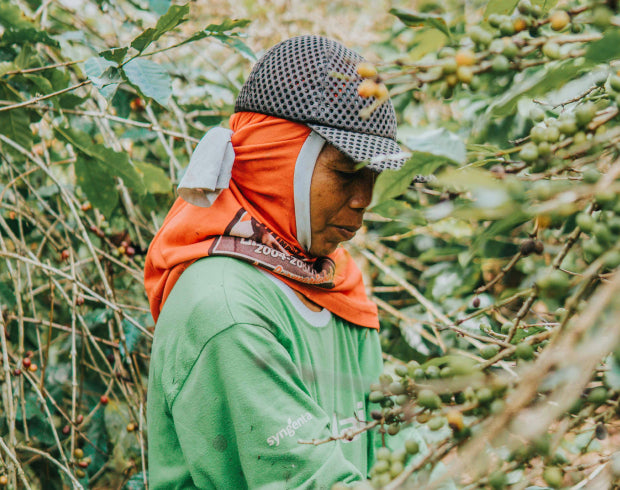
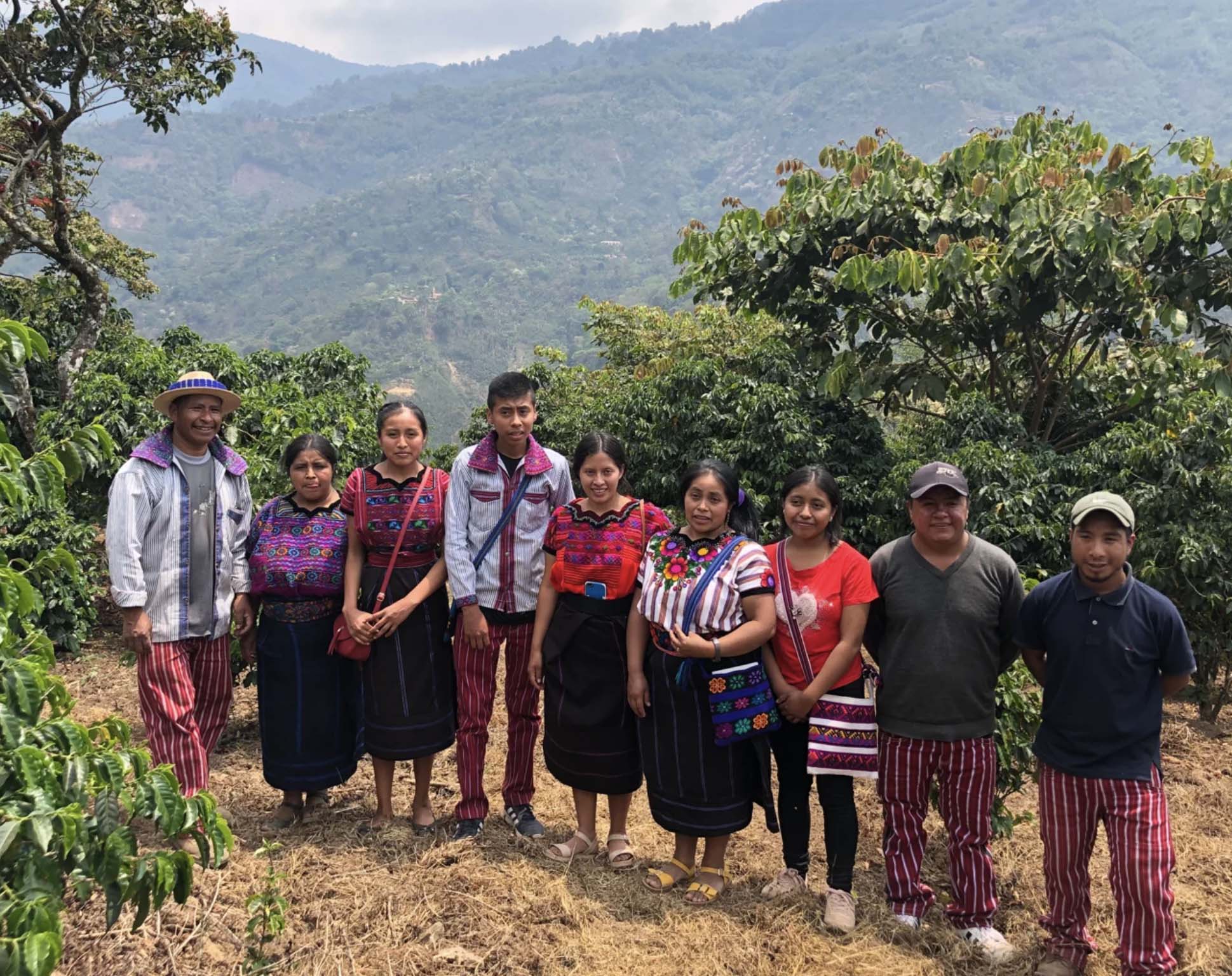
Verified Living Income
Verified Living Income goes beyond traditional fair trade certifications. This initiative establishes a green coffee price based on the real needs of producers to achieve a living income—a dynamic price, adapted to each local context. By taking into account production costs, living conditions, and farm size, it guarantees fair, sustainable, and humane remuneration.
STAY SMALL
In a world where growth is king, where companies seek to grow ever faster to maximize profits — we make the opposite choice: we choose to stay small. Staying small is the only way for us to preserve our artisanal approach and attention to detail. It's the only way we know our customers by name, maintain sincere human relationships, and never dilute our values.
Being small also means agreeing to produce less. Our roasting facilities—among the most environmentally friendly in the world—have limited capacity. This means fewer service points, a limited number of subscriptions, and a controlled volume of online sales. That's why you won't find our coffee in grocery stores. This model allows us to choose our partners based on deep affinities: a love of exceptional coffee, a commitment to the environment and ethics, and a shared respect for small, local businesses.
At its core, coffee is a product of sharing and comfort. Yet, drinking specialty coffee—or simply good coffee—remains a luxury for many people. Working in a roastery, it's hard to see our shelves filled day after day without thinking of those, or even organizations, who simply can't afford it. Every month, we donate coffee to an organization or foundation that needs it.
Write to us if you would like to submit a donation request, and follow us on our social networks to discover the story behind each of these organizations.
Collaboration with local artists.
Let's be honest: our goal is not to make a profit with our merch!
Above all, we want to have fun and offer small-run items, create with local artists, and manufacture in the most ethical and sustainable way possible. We think that these days, t-shirts made in China in sweatshops, timidly decorated with a company logo, no longer have a place. We approach each item as a creation and not as a commodity. Yes, sometimes there isn't even a logo!
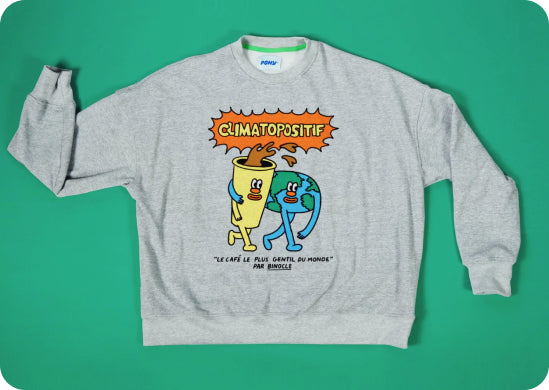
SHOWCASE
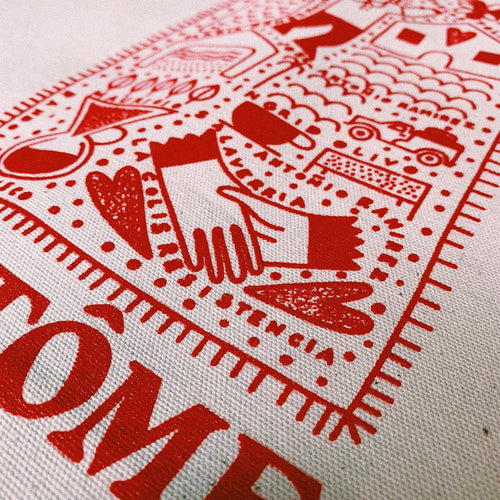
ON OTHER ROASTERS
We deeply believe that camaraderie and mutual respect are essential in the roasting industry. Quebec is full of exceptional microroasters, just as passionate about their craft as we are. We believe we can be proud of our own work while celebrating that of others. That's why we've chosen to feature other roasters—both small and large—in our showcase. Follow us on our social networks to discover our current favorites!
Subscriptions
Our least expensive, most ecological, and above all, most practical solution.
No commitment, and total flexibility on delivery frequency.